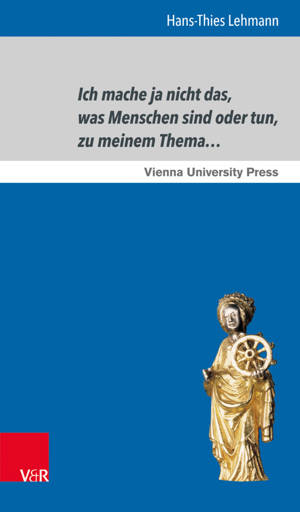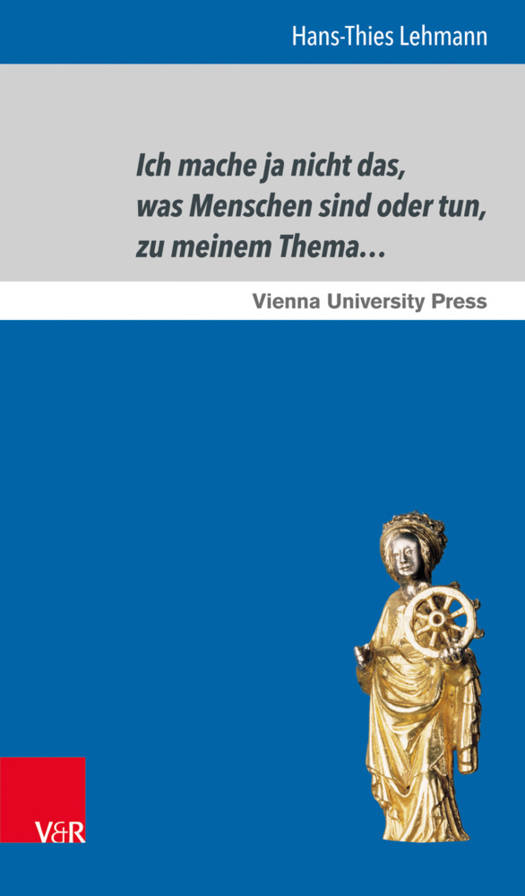
- Afhalen na 1 uur in een winkel met voorraad
- Gratis thuislevering in België vanaf € 30
- Ruim aanbod met 7 miljoen producten
- Afhalen na 1 uur in een winkel met voorraad
- Gratis thuislevering in België vanaf € 30
- Ruim aanbod met 7 miljoen producten
Zoeken
Ich Mache Ja Nicht Das, Was Menschen Sind Oder Tun, Zu Meinem Thema...
Postdramatische Poetiken Bei Jelinek Und Anderen
Hans-Thies Lehmann
Paperback | Duits | Fakultätsvorträge der philologisch-kulturwissenschaftlichen Fakultät der Universität Wien | nr. 14
€ 32,45
+ 64 punten
Omschrijving
Hans-Thies Lehmann erortert, dass die akademische Debatte uber Wert und Inhalt der Begriffe postdramatisch und Postdramatik ins Leere lauft, wenn verkannt wird, dass der erste sich auf Formen des Theaters, der zweite sich v.a. auf Textformen bezieht. Er argumentiert, dass - soweit die gegenwartige Textproduktion Rede steht - eine literarische Analyse verlangt ist, die Logik, Aufbau und Strukturierung des Theatertextes nicht von umfassenden ausserlichen Bestimmungen und Zuschreibungen herleitet, sondern produktionsasthetisch aus der immanenten Dynamik des Sprachmaterials und dem Prozess des Schreibens. Dagegen wurde eine Theaterwissenschaft, die die komplexe Dramaturgie der Worter vernachlassigt, die mit solcher Ausblendung erkaufte Verabsolutierung des Performativen mit einer zerstorerischen Verflachung ihres Gegenstands bezahlen. Hans-Thies Lehmann explains that the academic debate concerning the value and content of the terms "postdramatic" and "postdramatics" would be in vain should it go unrecognised that the first is based on forms of the theatre and the latter primarily on text forms. He argues that - as far as present-day text-production is at issue- a literary analysis is required that does not derive logic, composition and structuring of the theatre text from extensive external dictates and attributions, but rather production-aesthetically from the immanent dynamics of the language material and writing process. In contrast, any theatrical science that neglects the complex dramaturgy of words would pay for this with a destructive flattening of their subject as the price for the absolutisation of the performative having been bought with such exclusion.
Specificaties
Betrokkenen
- Auteur(s):
- Uitgeverij:
Inhoud
- Aantal bladzijden:
- 32
- Taal:
- Duits
- Reeks:
- Reeksnummer:
- nr. 14
Eigenschappen
- Productcode (EAN):
- 9783847106937
- Verschijningsdatum:
- 1/01/2017
- Uitvoering:
- Paperback
- Formaat:
- Trade paperback (VS)
- Afmetingen:
- 122 mm x 211 mm
- Gewicht:
- 1406 g

Alleen bij Standaard Boekhandel
+ 64 punten op je klantenkaart van Standaard Boekhandel
Beoordelingen
We publiceren alleen reviews die voldoen aan de voorwaarden voor reviews. Bekijk onze voorwaarden voor reviews.







